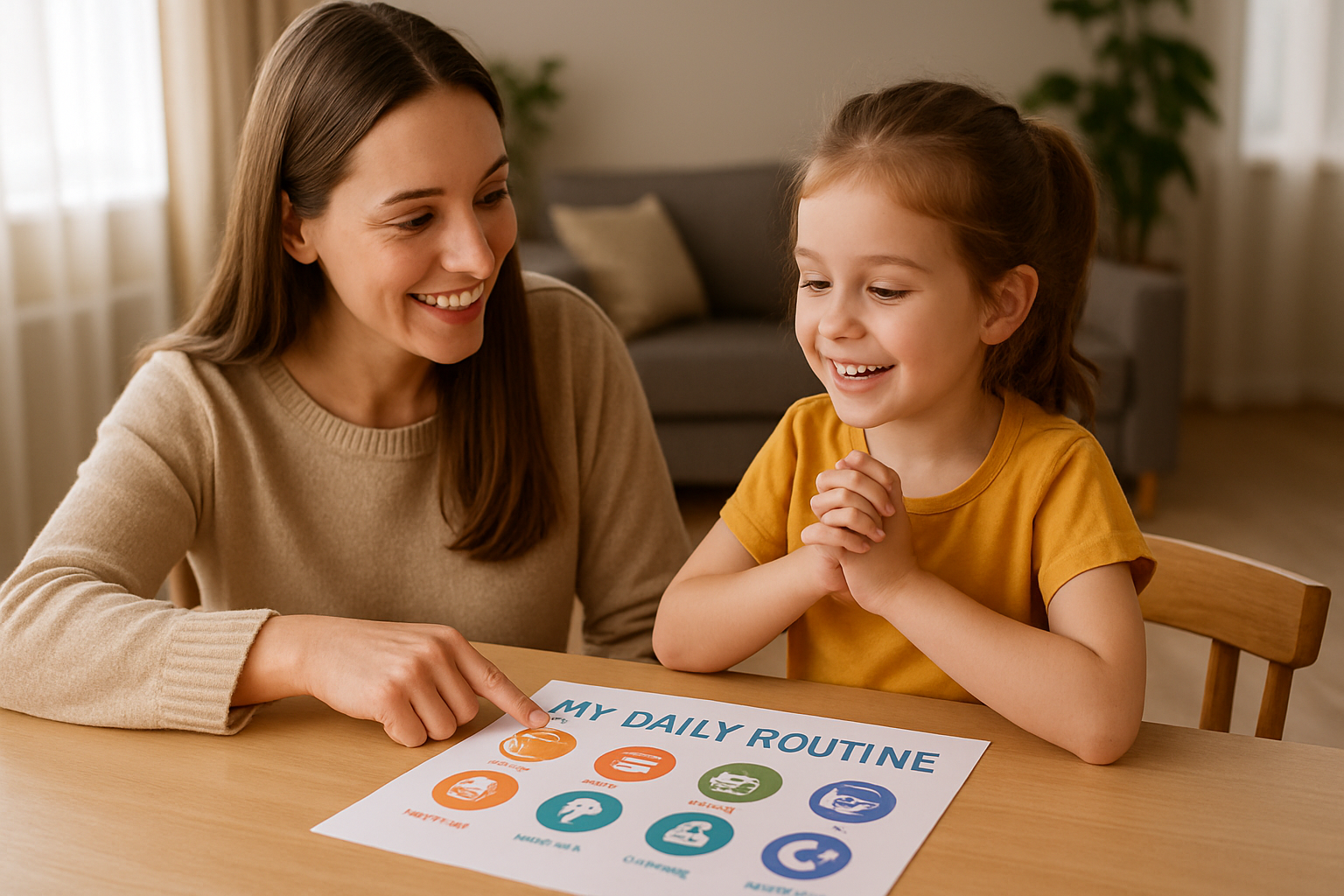A strong parent-child bond isn’t something that just happens — it’s built over time through connection, trust, and presence. This relationship forms the foundation of your child’s emotional well-being, social development, and sense of security.
Whether you’re starting fresh or strengthening what’s already there, here are practical ways to build a meaningful, lasting connection with your child.
1. Make Time for One-on-One Moments
In today’s busy world, it’s easy to let quality time slip away. But small, consistent moments of connection matter more than occasional grand gestures.
Set aside daily time — even 10 to 15 minutes — to be fully present with your child. No phones. No distractions. Just you and them.
This could be:
- Reading a book together
- Talking during a walk
- Playing a simple game
- Cooking together
The message is clear: “You are important to me.”
2. Listen More Than You Speak
Children open up when they feel truly heard. Instead of jumping in with advice or correcting them mid-sentence, just listen.
- Make eye contact
- Nod or offer gentle encouragement
- Repeat back what they said to show you understand
For example: “So you felt left out when your friend didn’t invite you?” This builds trust and shows you respect their feelings.
3. Create Routines and Rituals
Predictable routines help children feel safe, and shared rituals strengthen your bond.
You can create rituals around:
- Bedtime stories
- Sunday morning pancakes
- After-school check-ins
- Special “just us” outings
These routines become cherished memories and create emotional anchors for your child.
4. Show Affection — Every Day
Never underestimate the power of physical touch. Hugs, kisses, high-fives, and cuddles help children feel secure and loved.
Don’t forget verbal affection, too:
- “I love you.”
- “I’m proud of you.”
- “You make me happy.”
Even if your child resists touch at times, find other loving gestures — a warm smile or a caring note.
5. Be Emotionally Available
It’s not just about being there physically — it’s about being present emotionally. When your child is upset, excited, or confused, be their safe harbor.
Stay calm, be patient, and let them know it’s okay to feel big emotions. Avoid brushing off their feelings with “You’re fine” or “Don’t cry.” Instead, try:
- “That sounds hard — want to talk about it?”
- “I’m here. We’ll figure this out together.”
6. Apologize When You Make Mistakes
Parenting is tough, and no one gets it right all the time. When you lose your temper or make a poor choice, own it.
Saying “I’m sorry” shows humility and models accountability. It also reassures your child that relationships can survive conflict — and grow stronger through honesty.
7. Play Together — No Agenda
Play is a child’s natural language. When you join them in play, you’re speaking their language of connection.
Let your child lead. Don’t turn playtime into a lesson or competition. Just follow their imagination and enjoy the moment.
This kind of bonding deepens trust and shows you truly enjoy being with them.
8. Encourage and Support Their Interests
Take an interest in what excites your child — even if it’s different from what you expected. Whether it’s dinosaurs, drawing, music, or building things, your genuine curiosity and support mean the world to them.
Attend their recitals, games, or hobby projects. Ask questions about what they love. This tells your child, “I see you — and I value who you are.”
9. Respect Their Voice
Give your child space to express opinions, make age-appropriate choices, and participate in decisions that affect them.
This could mean letting them choose what to wear, what to eat, or what activity to do on the weekend. These moments build confidence and strengthen your relationship through mutual respect.
10. Be Their Safe Place — Always
More than anything, your child needs to know that they can come to you — no matter what. That you’ll be there, even when they mess up, feel scared, or face problems.
Reinforce this message with your words and actions: “There’s nothing you could do that would make me stop loving you.”
This unconditional support forms the heart of a secure parent-child bond.
Final Thought: Connection is the Core of Parenting
You don’t have to be a perfect parent to raise a connected, confident child. What matters most is being present, showing love, and building trust — every single day.
The bond you build with your child is one of the most powerful gifts you’ll ever give them. And it’s one that will last a lifetime.
